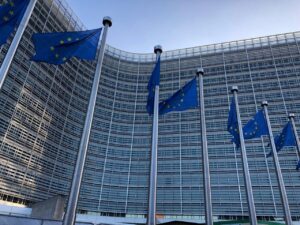The call of US senators to block Nord Stream 2 does not mean that Washington will impose sanctions on this project, although it is possible. This is another signal that will convince allies in Europe to a harder attitude towards Gazprom and its projects, such as the controversial gas pipeline – writes Wojciech Jakóbik, editor-in-chief of BiznesAlert.pl.
A signal from the Senate
The fact that the bipartisan group of 39 senators must ask the US administration for further action against the Nord Stream 2 project does not testify to Poles about its will to take the project by sanctions. Such possibility was presented by the Senate to President Donald Trump. However, he still did not use it.
Despite the new gas crisis in Ukraine and the attempted murder of a former GRU officer in the United Kingdom, the Americans do not decide to sanction the Russian Gazprom, nor its Nord Stream 2 project, which is criticized by the countries of Central and Eastern Europe. Poland, Lithuania, Latvia, Estonia, Ukraine and Moldova have appealed to the presidents of parliaments to block this project. Prime Minister Mateusz Morawiecki also appealed for US sanctions. In the text on this subject, I suggested that there would be no restrictions for now.
Security is more and more important
The appeal is in the mind of the Poles, because it once again draws attention to the problem of Nord Stream 2. Senators, like the Polish side, point to the security aspect. The new gas pipeline will allow Russia to more effectively bypass Ukraine in gas supplies to Europe, which may allow it to operate more aggressively on the „strange war” front in the east of the country. Politicians from the US, like Poles, warn that Nord Stream 2 will allow escalation of the conflict. Concerns about safety in relation to the project are also reported by Swedes who have asked about this aspect of NATO. Security arguments can play an increasingly important role in the Nord Stream 2 dispute. For example, Denmark may delay the project by not agreeing to the Danish section for security concerns. It is allowed by a new law.
The potential of US sanctions
However, the appeal of American senators does not mean pressure to impose sanctions on projects like Nord Stream 2. Although they remind you of the possibility provided for in the law on opposing America’s opponents (CAATSA):
• firstly, these types of sanctions will not necessarily be effective. From the analysis of Madalina Vicari Sisu who cooperates with BiznesAlert.pl, it appears that the State Department added guidelines to the sanctions proposal. They specify that restrictions may apply to export pipelines from Russia whose elements are not used for transmission through the territory of a third country (Nord Stream 2 will send gas through the Leningrad Oblast), which did not start to be built before August 2, 2017. Loans for Nord Stream 2 have been granted earlier.
• secondly, the appeal insists on convincing allies in Europe to abandon Nord Stream 2. – We encourage the administration to investigate exactly how CAATSA sanctions can be used to achieve this goal – the congressmen write. This is not a direct appeal to sanction the contested project. However, the letter of politicians contains numerous references to US allies in Europe, who should be convinced of the harmfulness of the project.
• Thirdly, even after introducing effective sanctions, it is possible that Gazprom will build a gas pipeline alone supported by the Kremlin.
The problem is that in the defense of Nord Stream 2 there are Austrian and German governments, and unofficially some others. This is an obstacle to new US sanctions. Despite the growing tension in relations with Russia, the Americans do not want to destabilize transatlantic cooperation through the lack of symmetry in the policy of sanctions. For this reason, they send a signal of readiness to further deepen the sanctions, show what they may concern, but wait with a step forward for European partners. The appeal of US senators is a confirmation of this course. Meanwhile, the Nord Stream 2 game is still going on in Europe and focuses on a draft revision of the gas directive, which is expected to take place in March.








